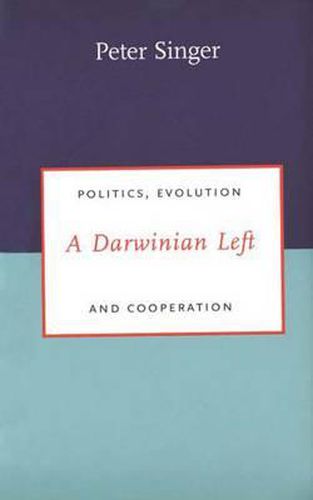Readings Newsletter
Become a Readings Member to make your shopping experience even easier.
Sign in or sign up for free!
You’re not far away from qualifying for FREE standard shipping within Australia
You’ve qualified for FREE standard shipping within Australia
The cart is loading…






In this ground-breaking book, a renowned bioethicist argues that the political left must radically revise its outdated view of human nature. He shows how the insights of modern evolutionary theory, particularly on the evolution of cooperation, can help the left attain its social and political goals.
Singer explains why the left originally rejected Darwinian thought and why these reasons are no longer viable. He discusses how twentieth-century thinking has transformed our understanding of Darwinian evolution, showing that it is compatible with cooperation as well as competition, and that the left can draw on this modern understanding to foster cooperation for socially desirable ends. A Darwinian left, says Singer, would still be on the side of the weak, poor, and oppressed, but it would have a better understanding of what social and economic changes would really work to benefit them. It would also work toward a higher moral status for nonhuman animals and a less anthropocentric view of our dominance over nature.
$9.00 standard shipping within Australia
FREE standard shipping within Australia for orders over $100.00
Express & International shipping calculated at checkout
In this ground-breaking book, a renowned bioethicist argues that the political left must radically revise its outdated view of human nature. He shows how the insights of modern evolutionary theory, particularly on the evolution of cooperation, can help the left attain its social and political goals.
Singer explains why the left originally rejected Darwinian thought and why these reasons are no longer viable. He discusses how twentieth-century thinking has transformed our understanding of Darwinian evolution, showing that it is compatible with cooperation as well as competition, and that the left can draw on this modern understanding to foster cooperation for socially desirable ends. A Darwinian left, says Singer, would still be on the side of the weak, poor, and oppressed, but it would have a better understanding of what social and economic changes would really work to benefit them. It would also work toward a higher moral status for nonhuman animals and a less anthropocentric view of our dominance over nature.